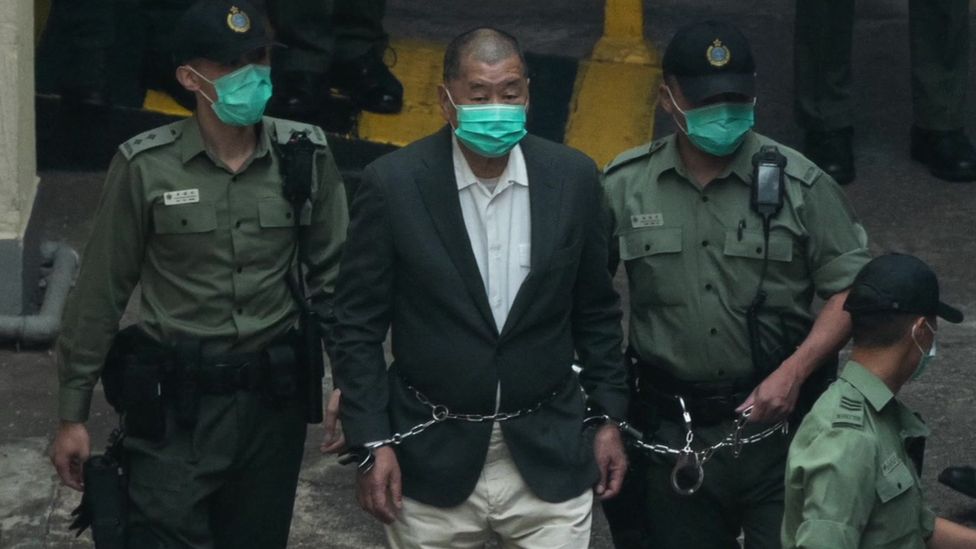-

-
-
Loading

Loading

After spending three-and-a-half years in jail, Jimmy Lai has finally appeared in a Hong Kong courtroom to face treason charges. Lai, who is often referred to as a "notorious anti-China element" by Beijing, was brought into the courtroom through the back door, where only those inside were able to witness his presence. At 76 years old, Lai looked noticeably thinner and weaker as he sat facing three judges who will decide his fate over the next few months. Despite denying all charges, Lai argues that he was merely defending the freedoms of Hong Kong, the city where he built his fortune. According to Lai's lawyers in London, the media mogul cannot expect a fair trial in Hong Kong. Although the authorities may claim otherwise, his legal team believes that the fundamental principle of the rule of law has been eroded in the city. They argue that while the institutions, such as judges and lawyers, are still present, the essence of a fair trial has been compromised. Jonathan Price, a barrister on Lai's international legal team, asserts that everyone knows there will only be one outcome, making it abundantly clear that Lai's trial is not impartial. Lai is one of at least 250 Hong Kongers who have been arrested since 2020 for allegedly endangering national security. Like others before him, he has been denied bail, the right to a jury, and his choice of lawyer. Despite claims by Hong Kong authorities that the city still upholds the rule of law under a common law system, many believe that it has irrevocably changed under Beijing's authoritarian rule. The introduction of the National Security Law (NSL) has suppressed dissent and crushed pro-democracy protests. Known for his media empire and the critical stance of his Apple Daily tabloid towards Beijing, Lai was arrested in August 2020 and charged with "collusion with foreign forces" and destabilizing Hong Kong. Prosecutors cited articles questioning the city's future and calling for international sanctions against officials as evidence. Lai was later charged with leading a pro-democracy protest and attending a banned vigil for the victims of the 1989 Tiananmen Square massacre. He received a total of 14 months for "unauthorized assembly" and five years for a separate fraud offense. Lai's case illustrates the vulnerability of anyone who speaks up for democracy in Hong Kong. Not only has he been repeatedly denied bail, but his choice of lawyer, UK silk Timothy Owen KC, has also been barred. The Hong Kong government designated foreign lawyers as a national security risk, requiring them to seek permission to work on NSL cases. Lai will also not face a jury, as the NSL allows the government to deny juries and appoint a panel of judges instead. The NSL has been used to imprison pop stars, lawyers, and politicians who were involved in the pro-democracy movement. This includes the case of the "Hong Kong 47," campaigners and legislators who organized a primary during the 2020 election. Ordinary citizens have also been ensnared, as authorities have relied on a colonial-era sedition law. The shrinking pool of legal professionals, along with lawyers and judges leaving Hong Kong, has further complicated the situation. In summary, Lai's trial exemplifies the erosion of freedoms, the compromised rule of law, and the lack of impartiality in Hong Kong's legal system under Beijing's authoritarian rule. The NSL has been instrumental in suppressing dissent and arresting individuals who advocate for democracy, resulting in a chilling effect on the population. The conviction rate of NSL cases and the lack of access to fair trials have raised concerns about the fairness and integrity of Hong Kong's justice system.